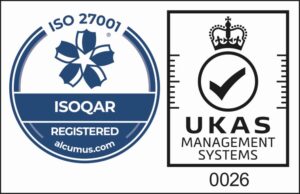How IT MSPs can help companies with digital transformation initiatives
In today’s fast-paced digital landscape, companies need to adapt to stay relevant and competitive. Digital transformation is the process of using technology to fundamentally change how businesses operate, deliver value to customers, and compete in the market. Managed Service Providers (MSPs) can play a crucial role in helping companies achieve their digital transformation initiatives. Here are some ways in which MSPs can help companies with digital transformation:
Infrastructure Modernization
MSPs can help companies modernize their IT infrastructure by migrating legacy systems to cloud-based solutions. This not only increases agility but also provides greater scalability and flexibility. By leveraging MSPs’ expertise in cloud computing, companies can accelerate their digital transformation journey and adopt new technologies more quickly.
Cybersecurity
As companies rely more on technology to operate, cybersecurity becomes a critical aspect of digital transformation. MSPs can help companies strengthen their cybersecurity posture by providing comprehensive security solutions such as network security, endpoint security, and data protection. This helps companies safeguard their digital assets and minimize the risk of cyber attacks.
Data Management
Data is a critical component of digital transformation. MSPs can help companies effectively manage their data by providing data analytics solutions, data warehousing, and data governance. With these solutions, companies can leverage data to gain insights into their business, identify opportunities for growth, and make informed decisions.
Application Development
As part of their digital transformation initiatives, companies may need to develop custom applications to meet their unique needs. MSPs can help companies develop, deploy, and manage applications, whether they are hosted on-premises or in the cloud. MSPs’ expertise in application development can accelerate the delivery of custom applications and ensure they are aligned with the company’s digital transformation goals.
IT Support
As companies implement new technologies as part of their digital transformation initiatives, they may face technical challenges. MSPs can provide IT support services to help companies overcome these challenges and minimize downtime. This ensures that companies can maintain their operations and continue to deliver value to their customers.
In conclusion, MSPs can play a significant role in helping companies with their digital transformation initiatives. They can provide expertise in infrastructure modernization, cybersecurity, data management, application development, and IT support. By partnering with MSPs, companies can accelerate their digital transformation journey, adopt new technologies more quickly, and stay ahead of the competition.













